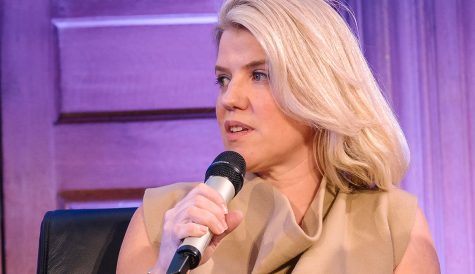
After more than 35 years of operation, TBI is closing its doors and our website will no longer be updated daily. Thank you for all of your support.
TBI Weekly: Six reasons why 2020 has been the year of AVOD
With an unexpected global pandemic and the roll-out of direct-to-consumer streamers from the US studios dominating much of the content-related conversation this year, it’s easy to forget that 2020 had been pencilled in by many as being the break-out year for AVOD.
And while considerably more might have been written about DTC and Covid-19, advertising-supported streaming has been quietly – and not so quietly – making its mark on the business. Here are six recent developments that underline AVOD’s growing importance in the content ecosystem.
Towards the end of last year, one name more than any other tended to dominate discussions about potential AVOD growth: Roku. Looking at its most recent results earlier this month, those predictions were on the money – the streaming device maker now has 46 million monthly active accounts, up by 43% for the year, with streaming hours up a similarly impressive 54% on the same period last year to 14.8 billion. Revenue in Q3 was up 73% to $451m, while ad spending had risen 57% year-on-year. Steve Louden, Roku’s CFO, said the “outstanding quarter” came as a result of “a confluence of very positive trends” involving record player growth, TV sales, and strong performances on both the advertising and content distribution side. Underlining AVOD’s new-found status, he added that the Covid-19 pandemic had “triggered a lasting durable change in how CMOs and marketers are thinking about their TV ad spend,” suggesting more of the same next year.
ViacomCBS promotes ad-supported thinking
It has been a busy year for the re-merged ViacomCBS too, with a strategy that is now pointing directly towards streaming of all flavours – and AVOD is clearly front of mind. First, the US media giant restructured its OTT operations two months ago in Europe, appointing Olivier Jollet – previously MD of Europe for ViacomCBS’s Pluto TV – to the head of a new division working across ad-supported and subscription services. Then came news that the company was overhauling its senior global management team, with Tom Ryan – CEO at Pluto TV – taking the helm of a new-look structure that will work across soon-to-launch SVOD proposition Paramount+ and global AVOD propositions. And then earlier this week, ViacomCBS CEO Bob Bakish highlighted the ad-supported experience of his new team whilst talking up Q3 results – suggesting that Pluto TV would “serve as a gateway to and funnel for our pay services.”
Samsung singing louder
Samsung is also rapidly emerging as a key player in the AVOD battle and it too has been acting on its own expansion plans. The electronics manufacturer’s ad-supported Samsung TV Plus streaming service is now set to become available on all of its smart TVs released since 2017, expanding the reach of the service in one swoop and signalling a mood shift away from an offering that reserved the AVOD for select devices. The move means free access to 80 live and on-demand TV channels for viewers based in the UK, Germany, Switzerland, Austria, France, Spain and Italy, with plans to expand into more European countries in 2021. Distributors have already struck numerous content deals too, with Samsung perhaps most notably picking up rights to Peaky Blinders from Banijay.
Peacock fans its hybrid offering
While ViacomCBS looks to leverage both AVOD and SVOD, NBCUniversal’s new streamer Peacock is already reaping the rewards of its hybrid model. At least, that’s the message from the company’s top execs, who revealed that the streamer had reached 22 million sign-ups in a better-than-expected quarter late last month. The company said shows such as Yellowstone – an acquisition from ViacomCBS’s Paramount Network – were among the top performers but the company was less forthcoming on how many of those 22 million users are using the streamer’s AVOD tier. Nevertheless, Brian Roberts, CEO at parent Comcast, said that the service’s three-tier model – which ranges from free to $9.99 per month for streaming without ads and offline viewing – “is the right streaming strategy at the right time.” He added: “Going out with free allowed us to grow quickly with a very low cost per acquisition and significantly less marketing spend and other new streaming services. We’ve also been able to effectively leverage our expansive high-quality library and over $20bn of annual content spend that supports our existing media businesses for Peacock, and enhance it with targeted incremental investment in additional streaming IP.” Corporate speak maybe, but the underlying message is clear.
WarnerMedia, likes its US studio brethren, has had a turbulent six months as it fights off Covid-related expenses and enacts a wholesale restructuring to put streaming front and centre. Its SVOD streamer, HBO Max, endured a cool start but seems to have picked up recently and there is clearly an increasing appetite to launch an AVOD option to subscribers as soon as possible. The streamer has talked of this option for more than a year but HBO Max boss Andy Forssell revealed at the end of last month that there is now increasing focus on getting this side of the offering launched, although details remain scant. What is known is that the service is planned for release in 2021 and ads “will be a subsidising force”, according to Forssell. “John Stankey has said that the ad-supported tier will come within a year of our launch and we launched in May 2020, so I think you can count on us beating that deadline,” he added.
ITV eyes AVOD originals
The UK’s ITV, which has also found itself deeply impacted by the pandemic’s effect on advertisers and production, is also looking to bolster incomes and tailor its offering via AVOD service ITV Hub. CEO Carolyn McCall, recently said that the commercial broadcaster had “invested a lot” in its streamer and added that 80% of 16-34s in the UK were now registered, with the focus now being on monetising those viewers. She pointed to the success of recent ITV drama Des, which was produced by All3Media’s New Pictures, adding that it had claimed a series average of 12 million consolidated viewers, two million of whom watched via the AVOD streamer. “It is about making sure that we give them stuff on Hub that draws them back in, rather than just catch up,” she said, adding that the broadcaster had an “evolving strategy” that will “definitely” see it start commissioning shows primarily for the AVOD, rather than linear channels.









